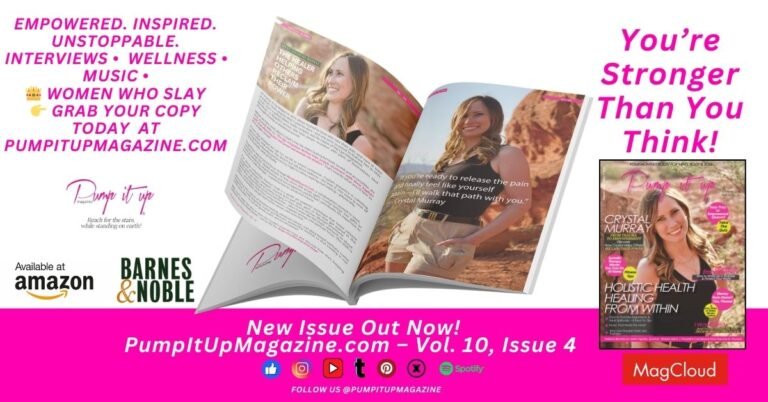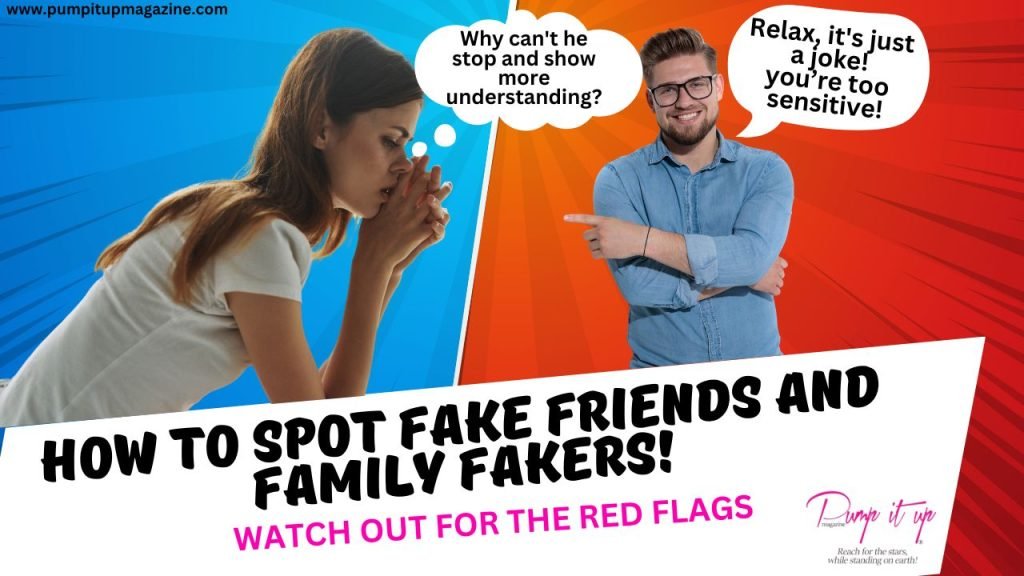In the realm of wellness, mental health stands as a cornerstone of overall well-being. As we navigate life’s journey, the people we surround ourselves with can significantly impact our mental health. While genuine friendships can uplift and support us, fake friends and toxic family dynamics can have detrimental effects on our psyche.
Identifying these negative influences is crucial for safeguarding our mental well-being. Here are some key indicators to help you discern if someone in your life, whether friend or family member, may not have your best interests at heart:
Lack of Empathy:
One of the hallmarks of a toxic relationship is the inability to empathize with your emotions or struggles. They may brush off your feelings or belittle your experiences, leaving you feeling invalidated and unheard. For instance, they might say, “You’re overreacting, it’s not that big of a deal. Stop being so sensitive.”
Conditional Support:
Toxic individuals often only show up when it’s convenient for them or when they need something from you. They may be quick to disappear when you’re going through a rough patch, indicating that their support is purely transactional. For example, they might say, “Sorry, I’m busy right now. Maybe next time when I don’t have anything else going on.”
Jealousy and Competition:
Instead of celebrating your successes, toxic individuals may exhibit envy or competitiveness. They may downplay your achievements or try to one-up you, fostering a toxic dynamic that erodes your self-esteem. They might respond to your achievements with, “That’s great, but my accomplishment is way more impressive. Let me tell you about it.”
Betrayal of Trust:
Trust is the foundation of any genuine relationship. If someone repeatedly breaks your trust by spreading rumors, gossiping behind your back, or betraying confidences, it’s a clear red flag that they may not have your best interests at heart. They might justify their actions with, “I didn’t think you’d mind if I shared that with just a few people. It’s not like it’s a big secret.”
Manipulative Behavior:
Toxic individuals often manipulate situations or emotions to serve their own agenda. They may guilt-trip you into doing things you’re uncomfortable with or use emotional blackmail to maintain control over you. For instance, they might say, “If you were a true friend, you’d do this for me. Don’t you care about our friendship?”
Inconsistency:
Pay attention to the consistency of their behavior. Toxic individuals may be unreliable, cancel plans last minute, or fail to follow through on promises. Their flakiness can leave you feeling disappointed and undervalued. They might excuse their behavior with, “I know we made plans, but something came up last minute. Can we reschedule?”
Gaslighting:
Gaslighting is a form of psychological manipulation where someone denies your reality or experiences, making you question your own sanity. Toxic individuals may gaslight you by invalidating your feelings or experiences, causing confusion and self-doubt. They might say, “You’re just being paranoid. I never said or did anything like that. You must have misunderstood.”
Lack of Boundaries:
Healthy relationships thrive on mutual respect and boundaries. Toxic individuals may disregard your boundaries, overstep your limits, or pressure you into compromising your values to accommodate their needs. They might dismiss your concerns with, “Relax, it’s just a joke.. Lighten up a bit.”
In response to the dismissive statement, the other person might feel hurt, frustrated, or misunderstood. They might internalize the message that their feelings are not important or that they are being overly sensitive for expressing their concerns. This could lead to feelings of resentment or distance in the relationship.
Recognizing these signs can empower you to cultivate healthier relationships and protect your mental well-being. Surround yourself with people who uplift and support you unconditionally, fostering a positive environment where you can thrive.
Remember, it’s okay to distance yourself from toxic individuals, even if they are family members, and prioritize your own mental health. Investing in genuine connections built on trust, empathy, and mutual respect is essential for nurturing your well-being and living a fulfilling life.













